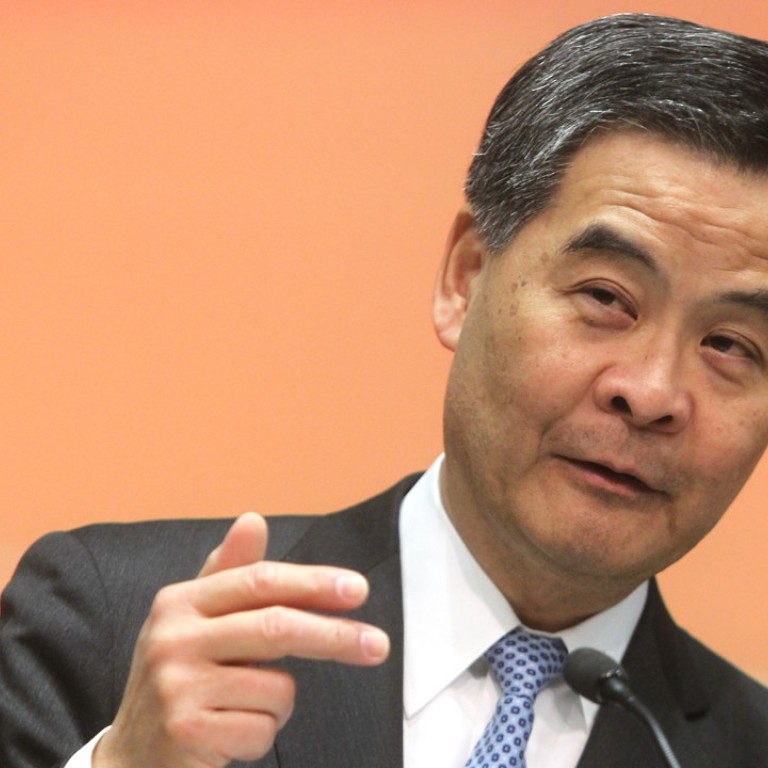
The last leader of Hong Kong tried anti-speculator taxes to attack demand – but home prices soared 52 per cent
Developers undercut intent of special taxes to make speculation less appealing, experts say, by offering offsetting subsidies and good mortgage deals.
The last chief executive of Hong Kong also tried to tame runaway home prices. Instead, over his five years in office, home prices surged 52 per cent.
Leung Chun-ying focused on demand, thinking that a variety of aggressive stamp duties would curb investors from snapping up multiple units. Then more flats would be available for average Hongkongers, his thinking went.
That contrasts with Chief Executive Carrie Lam Cheng, who is trying to unlock supply through a vacancy tax proposed in June that discourages developers from hoarding flats. She has been in office a bit more than one year, and during that time home prices have risen about 17 per cent.
Leung, who served from July 2012 to June 2017, rolled out an alphabet soup of anti-investor penalties: the special stamp duty (SSD), the double stamp duty (DSD), and the buyers’ stamp duty (BSD).
In October 2012, he unveiled a 15 per cent buyers’ stamp duty for non-permanent residents.
The BSD was largely intended to target wealthy mainland Chinese buyers, who were buying up to 40 per cent of new flats at the time and triggering tremendous resentment among Hongkongers.
Also in 2012, Leung toughened the SSD, which penalised people for reselling homes within three years of purchase. Depending on how quickly someone flipped a property, they faced a penalty of 10 per cent to 20 per cent on the new selling price.
Then in February 2013, individual buyers of second homes or companies purchasing residential property faced as much as an 8.5 per cent double stamp duty.
In November 2016, the government added the DSD, so non-residents would face an additional 15 per cent tax. This was on top of the BSD. For local resident, the DSD meant a 15 per cent tax on those buying a second home – or even more.
All are still in effect.
But developers helped speculators get around the taxes, extending offsetting subsidies, experts said.
Last month, the Inland Revenue Department announced that monthly income from all the alphabet soup taxes – the SSD, DSD and BSD – amounted to HK$2.58 billion (US$330 million), down 57 per cent per cent from a peak of HK$5.96 billion in June.
Dick Kwok Ngok-chung, president at the Hong Kong Institute of Surveyors, called the demand-side housing policies implemented during Leung Chun-yin administration “unhealthy” and ineffective in curbing home price growth.
By encouraging investors to buy new flats where developers could cut them deals to make up for the duties and extend easier mortgage terms, the policy ended up reducing demand for lived-in homes, experts say.
The number of transactions of used homes plunged 48 per cent to 83,815 deals in 2017, from the peak of 162,739 deals in 2010, according to the Lands Registry.

